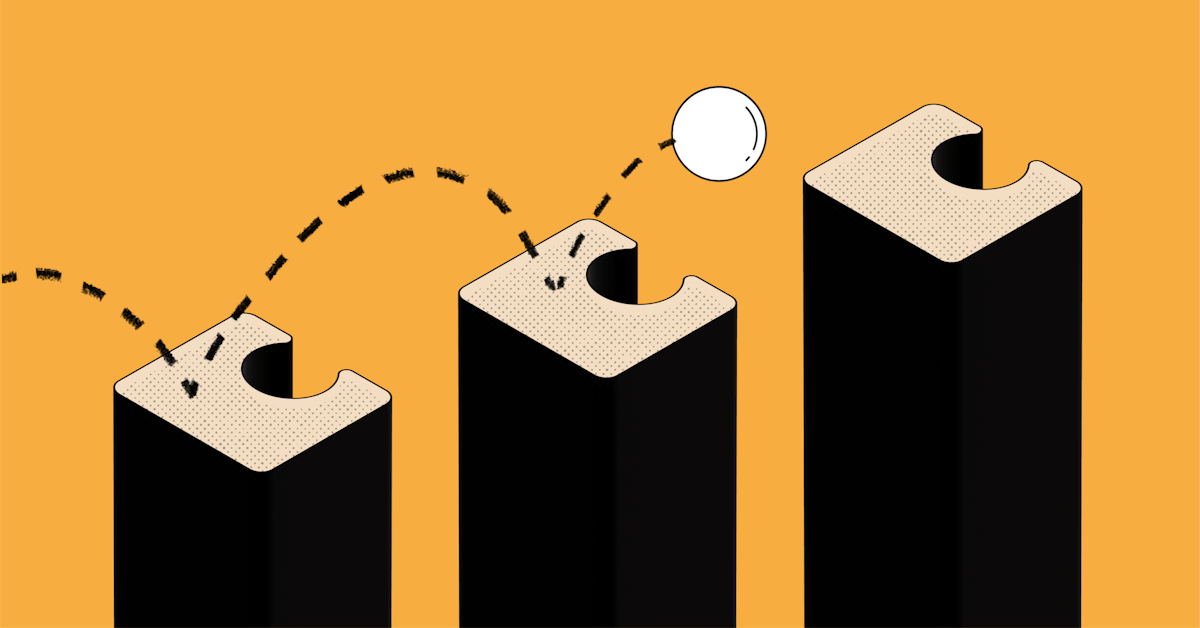5 key takeaways from the Lenny & Friends Summit
What I learned about building great products—and careers—from inspiring leaders at Netflix, Meta, YouTube, and more.


Harshita Yerramreddy
Product Manager at Coda
Product teams · 5 min read

Lenny Rachitsky, Product Leader and host of the Lenny & Friends Summit
1. Start from a place of empathy with customers.
Speaker: Eunice Kim, CPO at Netflix.
Netflix CPO Eunice Kim shared three principles to building empathy as a product manager (PM), using the story of Netflix’s recent account sharing updates to illustrate. Like most of us, I am an avid Netflix user, so I was thrilled to hear the inside story and how Eunice’s team approached it. To set the scene, Eunice described a monumental task she took up what she joined Netflix: solve account sharing (a common pattern among viewers that affected Netflix’s business). From user research, they realized that account sharing was a deeply emotional topic for their customers. The team developed three principles to solve this problem:- Respect customers and be incredibly clear in your product. In this case, Netflix felt that clarity around account sharing trumped generosity.
- Preserve your core value proposition: Eunice described the potential challenges with upholding Netflix’s “Watch from anywhere” promise. The team realized that, in order for members to still feel like this promise was honored, they needed to involve them in the process of identifying the “household.”
- Show vs. tell: The team landed on identifying the main TV in primary household as an opportunity to involve members, by asking them to share where they live and who is part of the household. By bringing them into the process in an interactive way, Netflix could show vs. tell what they were trying to do, while educating users at the same time. Eunice shared that this is especially for an important, consequential, or difficult launch, like changes to pricing.

Eunice Kim, CPO at Netflix
2. “Spoil the ending” at product reviews.
Speakers: Mihika Kapoor, Product Lead & Yuhki Yamashita, CPO, at Figma.
I loved the angle of this session on product reviews by Figma’s Mihika Kapoor and Yuhki Yamashita, as it challenged conventional advice typically shared with PMs. One of the main tips that stuck with me was to cut to the chase and get straight to the “controversial take” when sharing changes in product review meetings. Or, as Mihika put it, “ruin the punchline.” This is the opposite of most guidance given to PMs to share context and background information first. Mihika and Yukhi argued that their approach at Figma helps grab the audience’s attention earlier, helping them focus their time on the feedback that matters most (without falling into the trap of multitasking at meetings while context is shared). This really pushed me to think about how I lead my product reviews at Coda, and I’ll definitely be applying some of these takeaways to our Catalyst meetings.
Mihika Kapoor, Product Lead & Yuhki Yamashita, CPO, at Figma
3. Use rituals like products for your team.
Speaker: Shishir Mehrotra, Co-Founder and CEO at Coda.
As PMs, a core part of our job is helping our teams work as effectively as possible. One way we do that at Coda is using “rituals.” I loved hearing our CEO Shishir Mehrotra share more about some of the rituals that have shaped my experience at Coda, like Dory (which creates an inclusive environment) and Catalyst meetings. I particularly enjoyed Shishir’s method of breaking down decision-making into four parts, and treating the whole process as if it was a product:- How to ask the right question—so you can get to the right answer.
- Follow the right decision-making process (one that matches your company culture.)
- In the right forum. At Coda, that’s our Catalyst meeting, which aims to get through as many topics at once, with the right attendees.
- With the right stakeholders. One key insight here was that you should have no standing attendees in your decision making meetings.

Shishir Mehrotra, Co-Founder and CEO at Coda
4. PM your career like you PM your products.
Speaker: Nikhyl Singhal, Former VP of Product at Meta.
Former Meta VP of Product, Nikhyl Singhal shared a great reminder that PMs should put as much thought into our careers as we do into the products we manage. He highlighted the importance of building a personal brand, and posed a thought-provoking question: What’s the story you want to tell about your work 12 months from now? The talk was chock-full of actionable tips, but the ones that stood out to me most were:- Your reputation today is your brand tomorrow.
- Establish a reputation of hard work, strong opinions loosely held, and be a giver not a taker.
- Acquire great stories that show grit and opinion.
- Find a superpower, but beware of its shadow.
- Join a community and help one another.

Nikhyl Singhal, Former VP of Product at Meta
5. “If no one hates it, no one likes it.”
Speaker: Ebi Atawodi, Director of Product at YouTube.
As a creator myself, the talk by YouTube’s Ebi Atawodi about the key tenets of a good product vision really resonated. She highlighted the need to empathize (a recurring theme of the day!), envision, and evangelize. One line that particularly stood out to me was: “If no one hates it, no one loves it,” i.e. build things that evoke emotion in your team and the user. This was a helpful reminder to think beyond the “safe” solution. Some other pointers that stuck with me were:- Ship in chunks: Sometimes it can take months or quarters to ship a project, so Ebi recommended breaking a big project into smaller pieces and shipping iteratively. For example, Ebi’s team started the YouTube studio redesign by first changing search.
- Show rather than tell: If there’s a part of the product experience that feels broken or needs iteration, show, don’t tell, by highlighting to your team or leadership how bad it is.
- You cannot (and should not) do this alone: Crafting a vision is important but can only be done as a team. Ebi said it only takes a few passionate people and three days.

Ebi Atawodi, Director of Product at YouTube
More inspiration this way.
The Lenny & Friends Summit was a fantastic event, and I found it so inspiring and energizing to hear from product leaders I admire. I’ll certainly be thinking about how to apply these takeaways to my work as a PM. Hopefully they’ve given you some inspiration too.If you’re looking for more insights like these, we have a library of on-demand webinars with many talented product leaders, including speakers from the Lenny & Friends Summit like Shishir Mehrotra and Shreyas Doshi.












